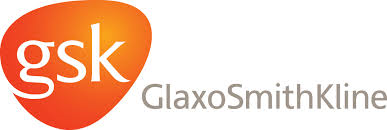GSK's candidate shingles vaccine shows high efficacy against shingles

Company expects to start submitting regulatory applications for the candidate vaccine for the prevention of shingles in people 50 years and above later this year.
GSK has announced the publication of detailed results from a randomised Phase III study (ZOE-70) of its investigational shingles vaccine, Shingrix, showing 90% efficacy in adults aged 70 years and older that is maintained for at least 4 years. The results were published in the New England Journal of Medicine (NEJM).
The study, from which headline results were reported in October 2015, showed that the two-dose candidate shingles vaccine had 90% efficacy compared with placebo in people over 70 years old. Vaccine efficacy was maintained across the various age groups included in the study, ranging between 90% in people aged 70-79 years and 89% in those aged 80 years and above.
The high efficacy is in line with the results of the ZOE-50 trial, a study in people over 50 years old, which was presented and published last year showing a 97% efficacy. A pooled analysis of data from both trials showed the vaccine demonstrated 91% efficacy against shingles in adults aged 70 years and older compared to placebo. This efficacy was maintained with an 88% reduction in the risk of shingles in the fourth year after vaccination.
The risk of serious adverse events, potential immune-mediated diseases or deaths observed in ZOE-70 was similar in people receiving Shingrix and placebo. The most commonly reported local adverse reaction was pain at the injection site and the most frequently reported systemic adverse reaction was fatigue. The majority of injection site and systemic reactions occurred within 7 days of vaccination, with most lasting 1-3 days, and generally were mild-to-moderate in intensity.
In addition, a pooled analysis of data from the ZOE-70 and ZOE-50 trials showed that the candidate vaccine effectively reduced the risk of subsequent chronic neuropathic pain, also known as postherpetic neuralgia (PHN), which is the most common, and often severe, complication of shingles. The candidate vaccine was shown to be 89% efficacious in preventing PHN in people aged 70 years and older and 91% efficacious in people aged 50 years and over.
Dr Emmanuel Hanon, Senior Vice President, Vaccines Research and Development, GSK, said: "This is the first time that such high efficacy has been demonstrated in a vaccine candidate for older people and it is remarkable, as we know that these people frequently have an age-related weakening of their immune system. If approved, this candidate vaccine could be an important tool for the prevention of shingles and the pain associated with it, which would significantly impact the health and quality of life of so many people."
Anthony Cunningham, Executive Director of the Westmead Institute for Medical Research in Australia and Principal Investigator of the ZOE-70 study said: "These data show that this investigational vaccine maintains high efficacy against herpes zoster in people over 70 and 80 years of age, the age groups who are most affected by the disease. Importantly, it also prevents a common and feared complication of herpes zoster, prolonged pain, or post herpetic neuralgia in these groups."
Based on these and the previously reported ZOE-50 data, GSK expects to start submitting regulatory applications for the candidate vaccine for the prevention of shingles in people 50 years and above later this year.
Related News
-
News BioNTech to begin mRNA vaccine manufacturing in Rwanda by 2025
German biotechnology company BioNTech has stated their intentions to begin production at their mRNA vaccine factory in Rwanda by 2025, which will mark the first foreign mRNA vaccine manufacturing site on the continent of Africa. -
News Identifying Alzheimer’s Disease biomarker proteins with whole blood tests
A University of Manchester spin-out pharmaceutical company, PharmaKure, has reported successful study results for the quantification of Alzheimer’s Disease biomarker proteins with a whole blood test. -
News Bill & Melinda Gates Foundation to boost mRNA vaccine initiatives in Africa with USD $40m
To address vaccine inequality and accessibility issues, the Bill & Melinda Gates Foundation aims to deliver USD $40m to various biotech companies and vaccine manufacturers in support of mRNA vaccine development. -
News CPHI Podcast Series: Exploring neurological frontiers in Alzheimer's and beyond
The next episode of the CPHI Podcast Series delves into the science and background behind some recent developments in the field of Alzheimer's disease and neurological disorders. -
News Is patient centricity the future of pharmaceutical manufacturing?
In this interview with Sandra Sánchez y Oldenhage, President of PharmAdvice, she speaks to the importance of considering patients in the manufacturing stages of the pharmaceutical supply chain, and how it can redefine healthcare. -
News CPHI Podcast Series: How to leverage AI for Drug Discovery
Artificial intelligence is the topic of debate in the latest episode from the CPHI Podcast Series, where Digital Editor Lucy Chard speaks with Bill Whitford of DPS Group about the integration of AI in healthcare. -
News Pfizer forges ahead with blood cancer therapy after approval from FDA
Pfizer gains accelerated approval from the US FDA for their new bispecific antibody therapy for multiple myeloma, set to address an unmet need for patients. -
News Alzheimer's drug donanemab deemed effective in landmark clinical trial
Results from the TRAILBLAZER-ALZ 2 Randomised Clinical Trial into the use of donanemab to treat early symptoms of Alzheimer’s disease have been analysed.
Position your company at the heart of the global Pharma industry with a CPHI Online membership
-
Your products and solutions visible to thousands of visitors within the largest Pharma marketplace
-
Generate high-quality, engaged leads for your business, all year round
-
Promote your business as the industry’s thought-leader by hosting your reports, brochures and videos within your profile
-
Your company’s profile boosted at all participating CPHI events
-
An easy-to-use platform with a detailed dashboard showing your leads and performance







